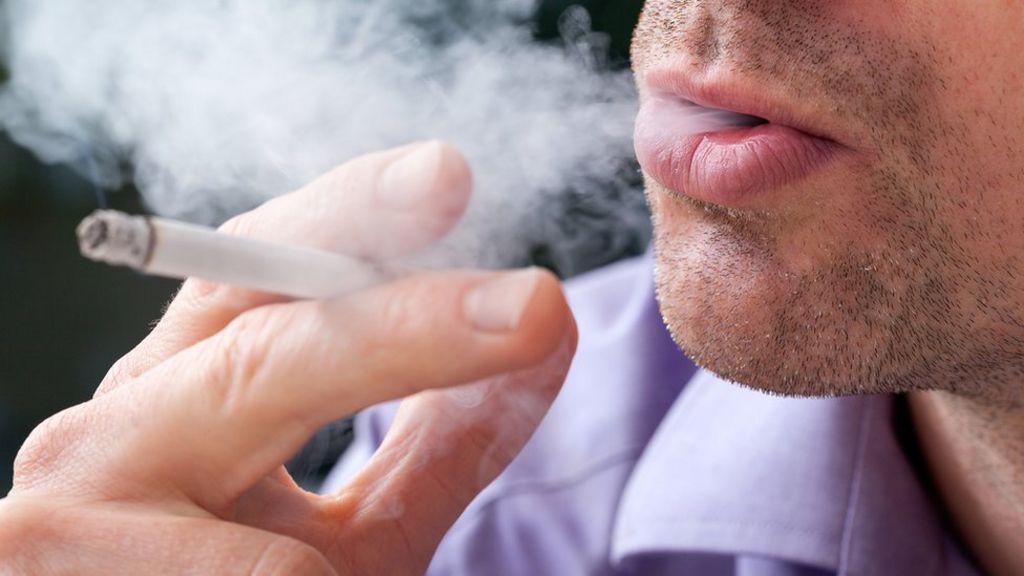The Power Of Habits
Compound The Efficiency Of Habits
Habits Will Sustain You, Maintain You Or Undermine You
The power of habits is firstly that they are regular and automatic, and secondly that they can:
- Sustain you
- Maintain you
- Undermine you
A habit is defined as: "an automatic response to a specific situation, acquired normally as a result of repetition and learning".
The Power Of Habits - SUSTAINING

The road was icy and narrow and as the Mercedes I was driving barrelled along (too fast), I was chatting to my teenage son. Suddenly a large van appeared coming towards us. He also was going too fast.
We were heading straight into a serious accident. I automatically took avoiding action and without touching the brake I steered into the gulley at the edge of the road and back onto the road whilst maintaining our speed. The oncoming van driver did the same and both vehicles shot past each other without a scratch.
The whole thing was over in less time than it's taken you to read this.
"Dad, how on earth did you do that?" asked my son. "Habit son, habit" I replied "...based on accumulated experience of many years driving in all weathers and conditions..."
The Power Of Habits - MAINTAINING

We were canooing in Halong Bay (Vietnam) about 2km off-shore. Unlike the calm conditions in the picture, there was a heavy swell and a stiff and freshening breeze.
Looking further out into the bay I could see dark clouds and what looked like a squall approaching. Whilst the immediate conditions were safe nevertheless I felt uneasy.
Old habits from extensive sea canooing many years previously kicked in and I found myself reading the conditions... noting the falling temperature, the taste of moisture in the increasing wind, and the white tops forming on the swell...
We circled round and headed back to shore...
The Power Of Habits - UNDERMINING

I have indulged in all of the usual vices and thankfully emerged relatively unscathed except for smoking...
For many years I used to smoke. I would stop for a few years and then start smoking again. The trouble is, that I like smoking - but my body doesn't! It's a habit that is deeply ingrained.
I finally figured out how to replace my smoking habit with a non-smoking habit...
The Efficiency Of Habits in Response Management
Habits are efficient and enable us to perform thought processes and behaviours without wasting time and energy figuring out what to do, and they do not require your conscious attention.
Habits are amoral and indifferent to outcome their sole function is to maximise the efficiency of your thinking and doing.
In a recent article we have looked in some depth at "The Law Of Response And Outcome" as means of living a resourceful life.
Managing your responses to events is entirely based on the efficiency of your habits:
# Thinking
How you think - is governed by habits. Your brain processes and organizes information in a number of different ways utilising a range of hardwired thinking processes. Your capacity to apply the most appropriate cognitive process to the situation you are faced with will largely be driven by your habits.
# Not Thinking
Being able to stop thinking - turn your thoughts off at will, and then witness or observe (without narrative or analysis) your thoughts and feelings as they arise is based on habit, the whole practice of mindfulness is entirely based on habits.
# Focus
Maintaining a consistent and persistent point of focus - on your long term goals in the pursuit of your life purpose is grounded in habits.
# Responsiveness
Managing your responses to the events in your life - influences the outcomes that you experience. The
strength and quality of your responses are determined by your
supporting skills and experience all of which is grounded in habits.
Compounding The Power Of Habits
- How small habits make a big difference over the long-term
James Clear’s book Atomic Habits explores the long term power of compounding, also known as the long game.
Small barely noticeable changes can make a major difference when you factor in the passage of time. Clear says:
"...if you can get 1 percent better each day for one year, you’ll end up thirty-seven times better by the time you’re done. Conversely, if you get 1 percent worse each day for one year, you’ll decline nearly down to zero...
...when we repeat 1 percent errors, day after day, by replicating poor decisions, duplicating tiny mistakes, and rationalizing little excuses, our small choices compound into toxic results.
- Habits are the compound interest of self-improvement
The same way that money multiplies through compound interest, the effects of your habits multiply as you repeat them.
They seem to make little difference on any given day and yet the impact they deliver over the months and years can be enormous."
The best opportunities in life are those offer superior returns, low risk, and a long duration.
Investing in
yourself in yourself and forming the right habits offer high returns in your investment of application and energy over the long term.
Good habits can give you a significant, sustainable competitive advantage in life.
- Good habits can give you an advantageous divergence from the herd.
The Science Of The Power Of Habits
One of the most well known and popular books on the power of habits is The Power of Habit: Why We Do What We Do in Life and Business by Charles Duhigg and he has written in detail about the science of the formation and change in habits:
Chunking
"The process—in which the brain converts a sequence of actions into an automatic routine—is known as ‘chunking,’ and it’s at the root of how habits form."
Origin of habits
"Habits, scientists say, emerge because the brain is constantly looking for ways to save effort. Left to its own devices, the brain will try to make almost any routine into a habit, because habits allow our minds to ramp down more often. This effort-saving instinct is a huge advantage."
Three-Step Loop of Habit Formation
"This process within our brains is a three-step loop.
First, there is a cue, a trigger that tells your brain to go into automatic mode and which habit to use.
Then there is the routine, which can be physical or mental or emotional.
Finally, there is a reward, which helps your brain figure out if this particular loop is worth remembering for the future...
Over time, this loop—cue, routine, reward; cue, routine, reward—becomes more and more automatic. The cue and reward become intertwined until a powerful sense of anticipation and craving emerges. Eventually… a habit is born."
Does the Brain Stop Functioning?
"When a habit emerges, the brain stops fully participating in decision making. It stops working so hard, or diverts focus to other tasks.
So unless you deliberately fight a habit—unless you find new routines—the pattern will unfold automatically."
Changing A Habit
"...a habit cannot be eradicated—it must, instead, be replaced.
If we keep the same cue and the same reward, a new routine can be inserted. But that’s not enough.
For a habit to stay changed, people must believe change is possible. And most often, that belief only emerges with the help of a group."
Permanence Of Habits
Habits never really disappear. They’re encoded into the structures of our brain, and that’s a huge advantage for us, because it would be awful if we had to relearn how to drive after every vacation. The problem is that your brain can’t tell the difference between bad and good habits, and so if you have a bad one, it’s always lurking there, waiting for the right cues and rewards.”
James Clear builds on Charles Duhiggs work in this article:
How To Start New Habits That Actually Stick
Read an overview and key point summary of "Atomic Habits"
Further Reading:
5 Buddhist Teachings on Working With Habitual Patterns of Thought
Habits Of Incredibly Happy People
Return from The Power of Habits to: Renewing Your Mind
LATEST ARTICLES
Master The Season You Are In - The Key to Fulfilling Your Purpose
 To fulfil your purpose, you must first master the season you are in. One of the biggest mistakes you can make in life is focusing all your energy on the next season instead of learning to master the s…
To fulfil your purpose, you must first master the season you are in. One of the biggest mistakes you can make in life is focusing all your energy on the next season instead of learning to master the s…The Inner Weight of Shame - Sustained By Attentional Fixation
 A Mind That Is Continuously Engaged In Self-Surveillance. Shame is one of the heaviest inner burdens a human being can carry. It does not announce itself loudly or demand attention through drama. Inst…
A Mind That Is Continuously Engaged In Self-Surveillance. Shame is one of the heaviest inner burdens a human being can carry. It does not announce itself loudly or demand attention through drama. Inst…Does Prayer Work? The Psychology of Prayer, Meditation and Outcomes
 Reality Is A Complex System Of Countless Interactions - Including Yours. So does prayer work? The problem is that the question itself is usually framed in a way that guarantees confusion. We tend to a…
Reality Is A Complex System Of Countless Interactions - Including Yours. So does prayer work? The problem is that the question itself is usually framed in a way that guarantees confusion. We tend to a…Living in Survival Mode Without Surrendering Mental Authority
Living in Survival Mode Without Surrendering Mental Authority
 Clear Thinking When You’re Just Trying to Stay Afloat. Many people today are overwhelmed because they are living in survival mode - not temporarily, but as a persistent condition of life. For many, th…
Clear Thinking When You’re Just Trying to Stay Afloat. Many people today are overwhelmed because they are living in survival mode - not temporarily, but as a persistent condition of life. For many, th…Manifestation Without Magic: A Practical Model
 Manifestation without magic is not a softer or more intellectual version of popular manifestation culture. It is a different model altogether. Popular manifestation teachings tend to frame reality as…
Manifestation without magic is not a softer or more intellectual version of popular manifestation culture. It is a different model altogether. Popular manifestation teachings tend to frame reality as…Staying Committed When You Can't See Progress - The Psychology of Grit
 Uncertainty Is Not The Absence Of Progress, Only The Absence Of Reassurance. One of the most destabilising experiences in modern life is not failure, but uncertainty and staying committed when you can…
Uncertainty Is Not The Absence Of Progress, Only The Absence Of Reassurance. One of the most destabilising experiences in modern life is not failure, but uncertainty and staying committed when you can…The Battle For Your Mind - How To Win Inner Freedom In A Digital Age Of Distraction
 From External Events to Inner Events. We often think of “events” as things that happen out there: the traffic jam, the rude comment, the delayed email reply. But what truly shapes our experience is wh…
From External Events to Inner Events. We often think of “events” as things that happen out there: the traffic jam, the rude comment, the delayed email reply. But what truly shapes our experience is wh…How to See Your Thoughts Without Becoming the Story
 A Practical Guide to Thought-Awareness. You can spend your life inside the stories of your mind without ever learning how to see your thoughts clearly and objectively. Most of the stuff we tell oursel…
A Practical Guide to Thought-Awareness. You can spend your life inside the stories of your mind without ever learning how to see your thoughts clearly and objectively. Most of the stuff we tell oursel…The Collison Decision Matrix - A Simple Framework for Better Choices
 The Collison Decision Matrix Is A Practical Everyday Thinking Tool. Most of us spend a surprising amount of time worrying about decisions. From small ones such as what to wear, what to eat, what to te…
The Collison Decision Matrix Is A Practical Everyday Thinking Tool. Most of us spend a surprising amount of time worrying about decisions. From small ones such as what to wear, what to eat, what to te…The Power Of Asking The Right Question
 The Power Of Asking The Right Question Lies In The Quest For Insight. To experience the power of asking the right question you must develop the practice of asking questions. The best way to improve th…
The Power Of Asking The Right Question Lies In The Quest For Insight. To experience the power of asking the right question you must develop the practice of asking questions. The best way to improve th…Site Pathways
 Here is a site pathway to help new readers of Zen-Tools navigate the material on this site. Each pathway is based around one of the many key themes covered on this site and contain a 150 word introduc…
Here is a site pathway to help new readers of Zen-Tools navigate the material on this site. Each pathway is based around one of the many key themes covered on this site and contain a 150 word introduc…
